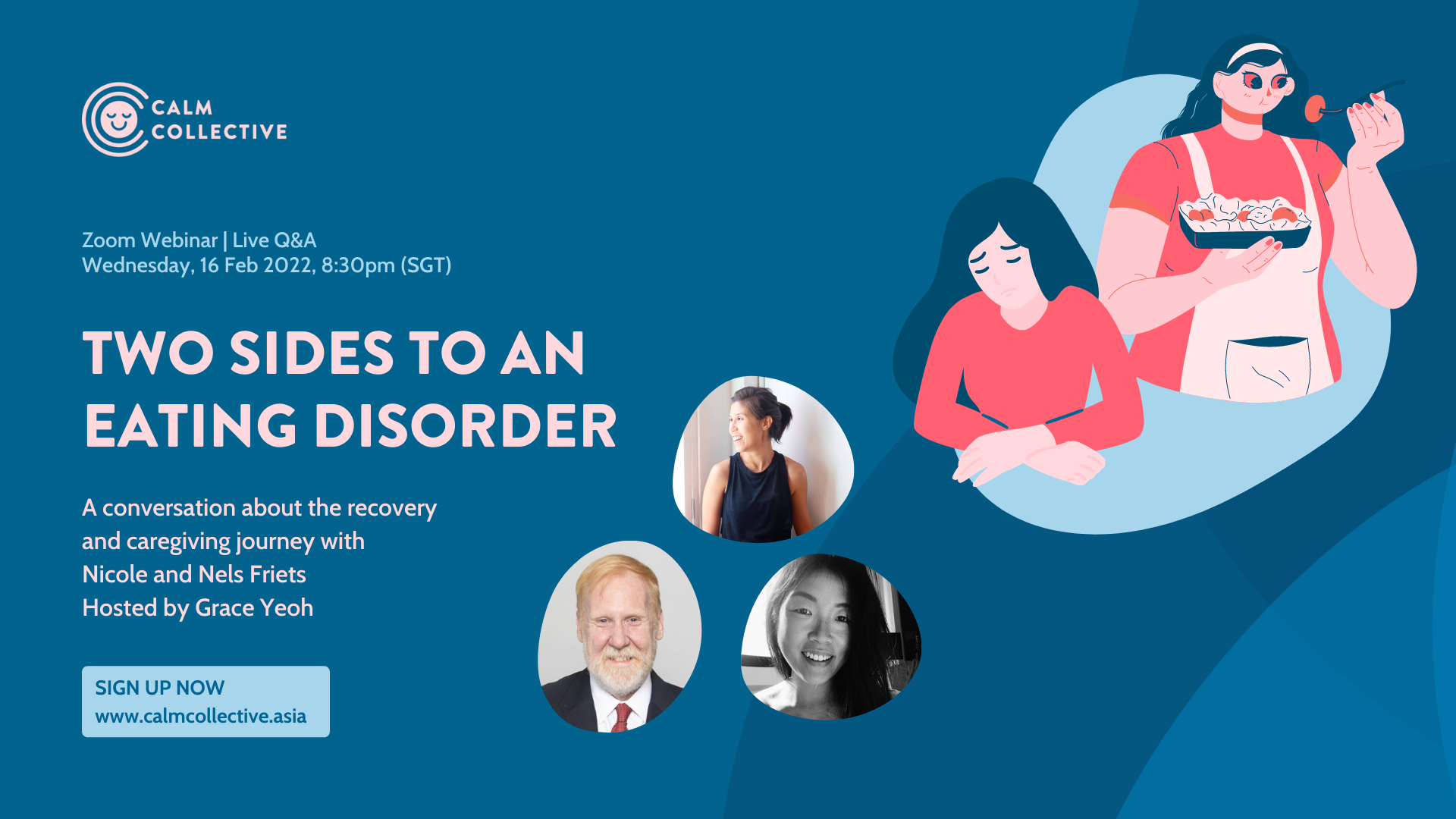My journey towards accepting my body
I don’t remember ever really thinking about my body as a kid – being able to run, swim, and play was good enough. In Secondary 1, a senior in school told me about thigh gaps. When I asked, ‘What’s the big deal?’ she responded, ‘You’ll know when you’re older.’ As I experienced more conversations like these, came across idealised bodies in the media, and heard remarks on others’ appearance… I grew increasingly conscious of how I looked and realised what she meant.
Here’s why comments about my body bother me:
I gain weight when I’m stressed as I eat my feelings and can’t bring myself to leave the house. At the same time, I also gain weight when I’m comfortable and happy (during festive periods, for example). I lose weight when I feel good enough to exercise regularly. I also lose weight when I’m struggling and can’t cook proper meals. My weight fluctuates the most during periods of change and when my mental state isn’t so great. Needless to say, it’s frustrating and inappropriate to be criticised for my appearance when everything already seems out of my control.
Just like being ‘fat’ doesn’t equate to being of certain health, being ‘skinny’ shouldn’t equate to being healthy or happy, either. Being judged on the basis of unrealistic standards of beauty is extremely harmful – it can cause body dysmorphia, romanticise eating disorders, aggravate mental health issues, and lead to the perpetuation of these destructive ideals upon unconsciously internalising them.
Having a negative perception of your body image is not something you’re born with, but something learned. Across countries and cultures, societal ideals monopolise paradigms of beauty. I doubt I’m the only person who feels trapped by this mindset. Even with recent body positivity movements and attempts to promote diversity in the media, struggling with body image isn’t exclusive to any age group, gender, or class.
How can I look after my body image?
The concept of ‘body image’ is a construct that systematically governs our sense of self. The fact is that everyone’s bodies are incredibly different - It shows that our relationship with food is highly nuanced and that our bodies react differently to stimuli. We know this, but the pervasion of conventional ideals of beauty in societies, the media, as well as individual perceptions can often convince us otherwise.
We often tell ourselves that we’ll like our bodies once we are in better shape. I prefer to look at that statement in “reverse”: look after your body, find things you like about it, and once you’ve accepted it, then teach yourself to love it.
Our ultimate goal is to achieve body acceptance: accepting (and even welcoming!) that bodies change as we grow/age, and understanding that this is what makes us human.
1. Fostering a healthy relationship with food
A good relationship with food involves welcoming all foods in moderation, eating foods that you enjoy, not allowing food to control your life, and knowing that the foods you eat do not define your value as a person. – Healthline
Developing a good relationship with food isn’t remedied by any one-size-fits-all hack. Rather, it takes patience, consistency, and maintenance. The least intimidating way to start is by taking baby steps. Here are some resources that suggest different ways to approach this:
Most importantly, remember that you have the power to navigate this journey however it best suits you. Not only will you be saying a big ‘F*** YOU’ to diet culture, but you’ll be taking a stand against the rhetoric of negative body image that so many struggle with.
2. Take care of your body
This might be taking that walk, going on that run you’ve been dreading, eating in moderation, and getting enough sleep. Other forms of self-care might look like: eating healthy, not body shaming yourself, and focusing on what your body can do.
A helpful tip I recently heard is to cultivate the habit of replacing a bad thought with a good one. For example, the moment you catch yourself thinking something like ‘I wish I had a flat tummy’, immediately counter it with something like ‘I have such great eyesight’, or ‘I love how good I am at maths’. I believe it’s extra rewarding if you compliment one of your qualities, rather than a physical feature, to nurture an intrinsic appreciation of yourself that extends beyond external appearance.
3. Coping with a ‘bad body image day’
On some days, loving yourself feels impossible – I get that, too. Four things you can do on a day like this include:
Wearing clothes you feel comfortable in. Tight-fitting or new outfits can cause anxiety, so go for clothes that make you feel comfortable.
Avoid body checking: seeking information about your body’s weight, shape, size, or appearance. It will not change anything nor fix the way you feel.
Distract yourself – try out the aforementioned self-care tactics!
Talk to someone. It takes courage to reach out, but remember that if your struggles become too much to handle and begins to affect your day-to-day life, there is absolutely no harm in seeking professional help.
Like many of us, I’m still learning to love myself and my body.
It might be hard to accept that our self-perception is warped, but only we know what we’ve been through, and the judgement of others is not a reflection of our personal growth. Let’s celebrate how our bodies have kept us going instead of putting ourselves down based on the perception of others. You’ve got this!
Watch the replay of our talk “Two Sides to an Eating Disorder”

